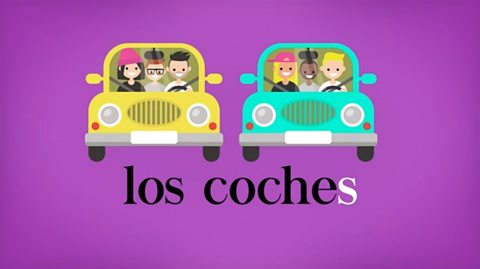Exam, assignment and performance
Key vocabulary, questions and answers for Higher Spanish assessment
It is useful to memorise some key vocabulary related to the assessment topics of culture, society, learning and employability. Key phrases can also help plan how to introduce your answer, make your argument and then conclude.

Reading
Reading about culture in Spanish
Reading about culture and TV habits in Spanish requires knowledge of thematic vocabulary. Correct use of grammar and tenses will improve your comprehension.

Reading about employability in Spanish
Reading about employment and work in Spanish requires knowledge of thematic vocabulary. Correct use of grammar and tenses will improve your comprehension.

Reading about learning in Spanish
Reading about school and learning in Spanish will benefit from a knowledge of thematic vocabulary, grammar and the ability to understand and express opinions and use conjunctions effectively.

Reading about society in Spanish
Reading about health and smoking in Spanish will benefit from a knowledge of thematic vocabulary, grammar and the ability to understand and express opinions and use conjunctions effectively.

Writing
Writing about culture in Spanish
Writing about a variety of topics in Spanish requires a knowledge of vocabulary, an awareness of grammar and the ability to use a dictionary effectively.

Writing about employability in Spanish
Writing about employment and work in Spanish requires knowledge of vocabulary, including time phrases. Correct use of grammar and tenses will improve your writing.

Writing about learning in Spanish
Writing about school and learning in Spanish will benefit from a knowledge of vocabulary, grammar and the ability to express opinions and use conjunctions effectively.

Writing about society in Spanish
Writing about a variety of topics in Spanish requires a knowledge of vocabulary, an awareness of grammar and the ability to use a dictionary effectively. It is important to use the right tenses.

Grammar
Nouns and articles
A noun is a naming word used for a person, thing, place or idea. In Spanish, all nouns are either masculine or feminine. The word for 'the' or 'a' changes depending on the gender of the noun and whether it is singular or plural.

Adjectives
An adjective is a word that describes a noun. In Spanish, adjectives have different endings depending on whether the word they are describing is masculine, feminine, singular or plural.

Adverbs
Adverbs are words that add meaning to the verb and describe actions. They tell us when or how something is happening or where the action in a sentence takes place.

Pronouns
Pronouns are used to replace nouns. Pronouns are usually shorter and quicker ways of referring to a noun to help make sentences less repetitive.

Present tense
Use the present tense to describe what you do and what things are like. The present continuous can be used to talk about what is happening now.

Preterite tense
Use the preterite tense to talk about completed actions at specific times in the past. The preterite is used when the past action has a definite beginning and definite end.

Imperfect tense
Use the imperfect tense to talk about repeated or continuous actions in the past. The imperfect is used when the past action doesn鈥檛 have a definite beginning and definite end.

Perfect tense
The perfect tense is used to express or describe actions that have happened in the recent past. It has two parts that always need to be used together.

Future tenses
Use the immediate future tense to talk about what is going to happen. The future tense is used to express what will take place.

Conditional tense
Use the conditional tense to talk about intentions and ambitions that may happen in the future. The conditional is used for polite requests and to express phrases using 'would', 'could' and 'should'.

Other tenses and verb forms
Add variety to your written and spoken Spanish by using other tenses and verb forms. Develop your language skills and improve comprehension by recognising and practising a range of structures.

Negatives
Negative words can be used in different ways in Spanish. Construct negative sentences by using 'no' and other negative words and phrases.
